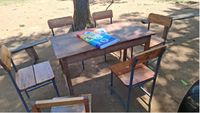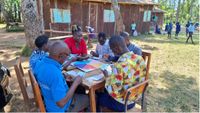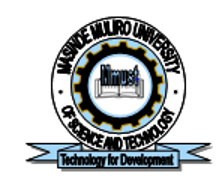SOL-idarity
SOL and “Ownership of Learning” in Developing Countries
Introduction
Though based in the Netherlands, the SOL Foundation has a strong international orientation. Since its founding in 2016, SOL has presented its insights almost every year at the international ICSEI conference (International Congress for School Effectiveness and Improvement). The SOL game and its underlying ideas on ownership of learning have now been introduced in many countries.
To make this work possible in regions where resources are scarce, the foundation SOL-idarity has been established. This foundation raises donor funds to make SOL’s tools and methods available in developing countries. In Kenya, SOL has a compelling reason to contribute its expertise.
A New Curriculum in Kenya
Kenya has launched an ambitious educational reform: the Competency-Based Curriculum (CBC). This new curriculum for primary and secondary education focuses on skills such as collaboration, critical thinking, and problem-solving — a fundamental shift from the traditional knowledge-based system.
The Role of Ownership
SOL supports this transformation by focusing on a crucial condition: the development of ownership. For CBC to succeed, students, teachers, and the school leadership must feel co-ownership of the change. That is precisely what the SOL approach aims to achieve.
Collaboration with MMUST
SOL collaborates with the School of Education at Masinde Muliro University of Science and Technology (MMUST) in Kakamega, Western Kenya. In this partnership, ten local schoolteachers have been trained as game facilitators (supervisors). They guide their colleagues and students in using the SOL game and play an active role in the implementation of CBC. The cooperation became official, when a formal collaboration agreement was signed.
Locally Adapted and Impactful
For this project, a special version of the SOL game has been developed, fully adapted to the Kenyan context. To reach rural areas without digital infrastructure, the tools were redesigned into a fully analogue format.
Is it successful? The answer appears to be a resounding yes. The game sessions are now referred to as true game changers. After a game day, schools are buzzing with new initiatives — from students, teachers, school leaders, and even parents. Ownership of learning becomes visible at every level.
Dialogue
Participants engage in conversations using a game board in a playful and reflective way. They are encouraged to “show their colors” using cards that contain statements about the current situation. In the second round, the same statements are revisited but now focused on a feasible near future. The dialogue and the visual display on the board awaken a desire for change. It reveals where the school stands — and where it wants to go.
Looking Ahead
There are plans to broaden the approach. It is SOL-idarity’s aim to introduce the tools in more school. There is an ambition to use the SOL game and its underlying theory within the curriculum of the teacher training program at MMUST. Together with MMUSTa research initiative was launched to use the data of the game sessions and other tools to make the CBC progress visible. The project spans a period of three years and is supported by contributions from the Stichting Onderwijs Steunfonds (SOS) and the Kees Pot Fund (KPF).
Policy document SOL-idarity




